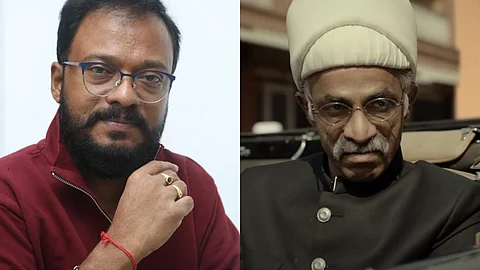

Yata Satyanarayana makes his directorial debut with the period historical drama Razakar, which releases this Friday. The film delves into the untold chapter of Razakar, during the 1930s and 1940s, amidst the independence struggle. Satyaranarayana credits the idea for the film to his experience working as a journalist years ago, which instilled in him a love for history. He adds, “During my journalism days, we were required to do book reviews once every week. So I ended up reading many books, whether I liked them or not. With those assignments, I ended up learning a lot about history.”
Satyanarayana also recalls his long association with producer Gudur Narayan Reddy, “We have known each other for over 10 years. One day, Narayan Reddy told me about his desire to produce a film. That’s when I suggested the subject of Razakar to him, and he was very enthusiastic about it.”
The filmmaker then delves into the extensive research that went into the project. He recounts how he referenced nearly 120 books with the help of his team. They referenced contemporary books as well as those written during the time the film is set in. He elaborates, “My film is 100 per cent based on history. Normally, in films, we tend to change things a little or add commercial elements. We did not do that.” Satyanarayana also expresses great confidence in both his research and storytelling, stating, “I can sit in a debate with 100 people and dare them to point out one flaw or inaccuracy in the film.”
Razakar has been the subject of many conversations on the political front as well. Satyanarayana addresses this, “Since my producer is associated with a prominent political party, rival parties are creating issues. Even a simple song like ‘Bharathi Bharathi’, which is about love for the motherland, sparked a lot of debate with people trying to draw unnecessary political links. But as a creator, I have no political intentions besides telling the truth. For me, there is no need to fear; I am doing my job. There is no scope for controversy here.”
Satyanarayana shares how the censor board authorities showed equal respect for his film by not suggesting any edits. He adds, “Their pointers were largely related to the violent scenes in the film, which they asked to tone down. But from a historical point of view, they respected my subject.” Satyanarayana adds further, “For every doubt or concerns the censor board had, I had four sources as proof. In fact, I carried plenty of books for my meeting with them.”
The director also dismissed the rumours about the film being delayed on account of censorship conflicts, adding, “The film needs approximately 1600 CGI shots. We had to recreate the Hyderabad of 1948, after all. As we speak, I am still finalising the edit of my film. VFX work was the only reason the release got postponed.”
Talking about the expanse of his film’s storyline, Satyanarayana woefully admits that he couldn’t cover as much ground as he wanted. He elaborates, “There were so many important events connected to the story—the formation of Andhra Maha Sabha in 1928, the growth of Razakar from 1936 to 1948—we couldn’t possibly capture it all. So we eventually narrowed down on the events that transpired between August 15, 1947, and September 17, 1948, from when India got its independence to when Nizam got its freedom. Additionally, we used a few events from the previous timelines to link the events.” Talking about the possibility of making a full-fledged web series on the subject, Satyanarayana adds, “This is a story for 15 films. So if things work out, I would ideally intend to cover it all in some medium or another.”
Even though Razakar is set in Hyderabad, Satyanarayana is very confident about the film’s universal appeal to audiences across the nation. He adds, “We were surprised to see that the Hindi teaser received a far better response. What happened back then is still happening in many parts of the world, like Iraq and Pakistan. So we feel it will resonate everywhere, with everyone.”
He then goes on to reminisce about his personal connect with the story, “Since I grew up in one of those regions with Razakar-related history, I know more about it. Perhaps it’s my responsibility too, to tell this story. But more importantly, I consider it my good fortune that I got this opportunity to make Razakar.”